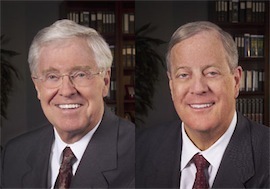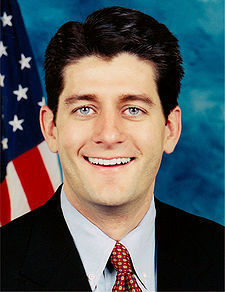Matthew Yglesias's Blog, page 2324
May 6, 2011
Zero-Sum Competition In Legal Services

Mike Konczal thinks about Peter Thiel and developing a critique of elite higher education:
This critique would go: Right now our best minds go off to the financial sector and high-end business and law programs, channeled through elite education. To pick an example at random, our best minds are hard at work making sure JP Morgan can squeeze local businesses with ever increasing interchange fees, instead of at work in Silicon Valley coming up with a way to circumvent and take apart that oligarchy using technology. They'll continue to find ways to create regulatory arbitrage, or find obtuse mechanisms to manipulate earnings reports, or help one group of corporations sue another group of corporations, instead of creating real new value and innovation. The carrot and stick of meritocratic rewards and debt collection push our elite onto this track, and Thiel's program can break that cycle. I'm not sure where I stand on it in practice, but it's an interesting debate.
I always feel like the lawyer side of this ought to be separated out because it strikes me as unusually clear-cut. Suppose we had a maximum income for lawyers such that no attorney could earn more than 10 times the national median household income (i.e., around $450,000 a year). Well, the quality of really high-end legal representation would decline relative to where it is today. But—so what? Ten times the median household income is still a lot of money, these high-end legal jobs would still be desirable, so it's not like corporate law would be done by total incompetents or that people holding down corporate law gigs would become dangerously slipshod. Any major corporation would be able to obtain competent legal representation, just as they are today.
When Apple and Samsung compete to sell more tablets, consumers wind up with better or cheaper stuff. But when Apple and Samsung compete to hire fancier lawyers to oversee their patent litigation, nothing is accomplished on net. Doing something to curb this red queen's race seems like a relatively easy to obtain win for the economy. It would level the playing field between big businesses and smaller ones, increase the government's ability to get high-quality legal representation, and improve the supply of smart hard-working people available to other fields.


May 5, 2011
Endgame
J'ai besoin de changer le temps:
— My neighborhood ten years ago.
— Pakistan asks Navy SEALs to refrain from killing Bin Laden a second time.
— Paul Ryan agrees that his budget includes an individual mandate.
— Human Rights Watch denies condemning the Bin Laden killing.
— Oil prices fall below $100 per barrel.
— Republicans seem to be dropping Medicare privatization but I'm still worried about Medicaid.
— Portland, ME cutting oil use with geothermal heating.
Yelle, "Mon Pays"


What Would A Free Market In Health Care Look Like?

Something Karl Smith and I agree about is that if you want to assess the merits of "socialized medicine" it's important to to recognize that a true free market in health care would look extremely different from what's happening now. For one thing, in the absence of federal subsidies (most notably the exclusion of employer-provided health insurance from taxation) and regulation (things like continuity of coverage rules) private health insurance would be largely unavailable. But beyond that, the actual provision of health care services is one of the most government-dominated spheres of the economy:
Further, in any case there is nothing akin to consumer soverignty in Medicine because first drugs have to be approved by the FDA, or else its illegal to prescribe them. Then you have to convince a licensed physician to prescribe them or else its illegal to buy them. [...] A true free market in medicine would let people create whatever drugs they wanted, however they wanted and would let consumers buy whatever drugs they wanted however they wanted. If someone chose to get the advice or consul of a physician then fine, but there would be no law making them do so.
Now maybe someone wants to stand up for that vision of libertarian medicine. Maybe Smith does. But even if you do, this is obviously not a politically realistic vision. The policy options on offer simply don't include a free market in health care. The question is what kind of subsidies and regulations are best. And my contention is that fairly direct government provision of health care services seems to be the most cost-effective way of providing subsidized medical care to the population.


David Koch Says Obama Doesn't Deserve Credit For Successful Bin Laden Operations

Top conservative money man David Koch is going for some kind of prize in gracelessness and decided yesterday not only to reiterate his view that Barack Obama is a "hardcore socialist" but also deny him any credit for the operation that succeeded in killing Osama bin Laden:
He just made the decision, it was obvious where the guy is. He was one of the worst terrorists organizing attacks on the United States. I mean, no president in his right mind would not approve that decision to go eliminate him. So he's getting a lot of recognition and his polls have jumped up, but his decision was the easiest of them all. The real hard work was done by the intelligence and the SEALs.
Obviously, the SEALs did the work here. But making decisions is the president's job. And he made the right one. It's easy to forget that we actually had a huge controversy during the 2008 about precisely this issue. Barack Obama said he would act unilaterally to kill high-value al-Qaeda targets in Pakistan, and John McCain slammed him for it. George W Bush chimed in as well:
The United States fully respects Pakistan's sovereignty, President George W Bush told President Pervez Musharraf Friday after a US presidential candidate backed unilateral military action against terrorist targets in the south Asian country. Bush telephoned Musharraf following comments by Democratic candidate Barack Obama on Wednesday that if elected he would support the use of US military strikes against al-Qaeda on Pakistani soil.
Obviously it's not the case that Obama is temperamentally more of a unilateralist than Bush or McCain. But he may just have a better sense of what's important and what's not. I like to think, though, that part of the difference is that Obama takes the United Nations seriously. The UN Charter is often viewed in American circles as circumscribing American sovereignty, but in this case it's relevant that the US had authorization from the UN Security Council to take "all necessary steps" to neutralize the "threat to international peace and security" posed by al-Qaeda. The President's judgment was that that entailed striking the compound without telling the unreliable Pakistani security services in advance. Both Obama's predecessor and his opponent in the campaign said they wouldn't do that, and if they'd followed through on their word Bin Laden might have gotten away.


Al-Qaeda Unlikely to Have The Capacity to Mount "Retaliatory" Terrorist Attack
Something I really don't understand is the apparently widespread fear that the United States is likely to suffer a retaliatory terrorist attack now that Osama bin Laden's been killed.

To me, the main thing we've learned about terrorism since 9/11 is that almost nobody living in the United States of America or any country from which you can travel to the USA without a visa (Canada, Western Europe, etc) actually wants to mount a terrorist attack. We've done a lot of homeland security since 9/11, but it's obviously imperfect. You never see a terrorist detonate a bomb in an airport security line, you don't see terrorists shooting up shopping malls, rogue drivers don't plow their cars into crowds of pedestrians, etc. There are clearly lots of people eager to fight the United States in Afghanistan and other places, but those people either don't want to come here or else they can't. The idea that there's some sleeper cell waiting for the right moment to strike was very plausible in September 2001, less so in October 2001, even less so in October 2002, and less and less and less and less plausible with every passing year.


Paul Ryan's Prescription For Recession

For a while now I've felt like I was the only one paying attention to this, so I'm glad that Ryan Avent went to a Paul Ryan presentation and also came away struck by his idea that we should pair recession-inducing spending cuts with recession-inducing monetary policy:
It wasn't so long ago that both parties supported countercyclical monetary policy. Top economists from across the ideological spectrum—from Milton Friedman to Christina Romer—point to tight monetary policy as a major factor exacerbating and prolonging the Great Depression. Mr Ryan claims he's worried about inflation. But based on what markets are saying, 10-year expected inflation is just 1.94%. That is, according to the Cleveland Fed, "the public currently expects the inflation rate to be less than 2 percent on average over the next decade". Mr Ryan said that he wished the Fed would drop its mandate for full employment and focus on price stability. Well, current inflation expectations indicate that tighter policy would maintain inflation below the Fed's implicit target of around 2%, which is the level of inflation most rich-country central banks have decided is conducive to stable prices and growth.
Fortunately, the chairman of the House Budget Committee doesn't set monetary policy. But the Federal Reserve Open Market Committee does pay attention to what people are saying about them. And if the only prominent politician in the country who talks about monetary policy is accusing their currently too-tight policy of being too-loose, that doesn't help. People who know better than Ryan need to step up.


Why Media Careers Don't Help Candidates
By Alyssa Rosenberg
I'm not sure anyone would have predicted going into this campaign that Fox News would do a better job than NBC of taking strict care not to violate equal time rules. But the May 31 deadline the network's given Mike Huckabee to decide if he wants to run for president or step away from his job is just another illustration of why, however much it pays, a media gig is not actually a great holding position for people who have finished up one government or political job and are contemplating running for another. Not only do you have the opportunity to say idiotic things that can be neatly spliced into campaign ads later, you are building a time bomb into you decision-making process.
Now, obviously there is a primary season, and you've got to make decisions within the context of the pace of the race itself. But it's actually not a bad thing to contemplate seriously whether you want to run for office, and if so, how you want to run. Adding another deadline to the process doesn't facilitate sober decision-making. Doing a boring old job studying policy, teaching classes, or running a company or a charity might not be as exciting as being on television. But the potential for error or general unpresidentialness on-air and the accelerated timetable seem to me to make talking heads jobs considerably less desirable if you actually want to win an election in the future.


Liberals Don't Know How To Take Their Own Side In An Argument, Want Compromising Leaders
Jamelle Bouie from the Pew survey—the slice of the electorate most likely to have down-the-line leftwing views on the issues also thinks the right leadership approach is to compromise a lot:

If you compare Pew's typology groups on "Politics & Elections" and particularly, "support for compromise," you'll find that 70 percent of solid liberals like elected officials who "compromise with those they disagree with." By contrast, only 17 percent of "staunch conservatives" agree. The rest — or at least, 79 percent — prefer elected officials who stick to their positions.
The old joke is that a liberal is someone too open-minded to take his own side in an argument, and there's evidently something to that.


Mitch Daniels Positioning Himself As The Thinking Person's Republican Presidential Candidate
The whole idea of Indiana Governor Mitch Daniels doing a media sit down with a group that includes Rick Hertzberg, Josh Marshall, and Michael Kinsley is a bit odd. Even odder is that he seems to have wanted those guys to like him! For example, he seems to think that you need more tax revenue to balance the budget:
"My brethren haven't stepped up," he said. By this he meant—I'm summarizing, not quoting— that the current G.O.P. candidates (a) haven't gone after defense spending with any seriousness, if at all, and (b) can't admit that because deficits occur when expenditures exceed revenues, a bit more of the latter, not just a lot less of the former, might be in order. To be sure, he dismissed Democratic demands for letting rich folks' income-tax rates revert to pre-Bush levels as bad-for-business "theology," and he supports the basic Ryan framework of lower marginal rates plus closing (mostly unspecified) loopholes and deductions. But unlike Ryan, who would use all the money from loophole-closing to cut tax rates, Daniels would use some of it to cut deficits. The net result, he claimed, would be more revenues, with the rich paying more, and a larger share, than they do now. Feeble? Perhaps, but he is a Republican.
He also seems to want us to think that he's not a bloodthirsty madman:
Jamie Rubin asked him a clever question, right out of "Who Wants To Be A Millionaire?": if he had just one phone call to make about some foreign policy issue and he could call either Richard Lugar or John McCain, which would it be? After a little hemming and hawing, he said that he is "always comfortable" talking with Lugar. Though of course he respects McCain, too, he hastened to add. Maybe he was just being nice about his state's senior senator, but I hope he was expressing a preference for diplomacy (Lugar's M.O.) over warmongering (McCain's).
As a strategy for winning a Republican presidential primary, this doesn't make a ton of sense. But on another level, it actually does make a ton of sense. After all, any given candidate is always unlikely to win. Mitch Daniels probably won't win. He probably won't win with this strategy and he probably won't win with any other strategy either. So maybe the best thing to do is to position himself in a way that's in line with his existing brand. If it doesn't work this time around, maybe Barack Obama will get re-elected and conservatives will say to themselves "we should have gone with Mitch Daniels." Meanwhile, for all the wonky talk he's still pretty damn right-wing, defunding Planned Parenthood and voucherizing Indiana's public schools.


Moulin Rouge! and the iPod Turn 10
By Alyssa Rosenberg
Todd VanDerWerff, the AV Club's television editor, made me feel positively ancient this morning when he tweeted out a reminder that Moulin Rouge! would be ten years old on June 1. I didn't love Baz Luhrmann's schmaltzy jukebox musical the first time, but it's since grown on me, and I think for good reason. The movie, which preceded the release of the first iPod on October 23, 2001 by a little less than five months, is the first one to really anticipate the rise of an era when we'd all live our lives accompanied by highly personal soundtracks, thanks to the sudden ability to carry around vast quantities of music with us all the time.
Luhrmann's always been very good at, and totally unashamed about, signaling big emotional moments with totally over-the-top pop music. The dance sequence in 1992′s Strictly Ballroom set to "Time After Time" and set against a giant Coca-Cola billboard would be unacceptably crassly commercial if it wasn't so joyfully effective:
By 1996, Romeo + Juliet's progressed to actually having a source for the music on-screen, if off to the side, most notably in the form of Quindon Tarver's choirboy, suggesting that we and the characters are hearing the same thing:
And in Moulin Rouge!, the characters are expressing themselves directly in popular songs, some of which are in the context of actual performances, but most of which aren't. The "Elephant Love Medly" has always struck me as particularly attuned to the way iPods would end up letting us score our own lives, skipping the switching-out-a-tape-or-CD bit of listening to songs by different artists, essentially eliminating the labor of picking a song order and synching up selections in a mix tape, making it astonishingly easy to flip between compatible bits of songs:
If you look at the movie musicals that came out in the ten years before Moulin Rouge!, the genre was dominated by children's movies, Broadway adaptations, and movies by Australians (Priscilla, Queen of the Desert obviously did some of the same work as Moulin Rouge!, but reached a much more limited audience). Moulin Rouge! took the act of bopping along to a song that hit you incredibly hard in the moment and made it the stuff of high drama, affirmed that we weren't cheesy for feeling like champions when "Heroes" came into the rotation just at the right moment, that "Roxanne" really could express the full depths of love-struck agony. And the movie did that just in time for the technology that would let us carry around all the music we liked best, filtering out the annoying extras of radio, and let us listen to it all the time with relatively little fear of burning out batteries.
I remember how badly I wanted an iPod, and how frustrated I was that I couldn't afford to buy even a used one in college. YouTube may be equally responsible for the fact that I almost never listen to albums all the way through. But the iPod is what's let me live my life as a musical. Moulin Rouge! may be a silly, overwrought movie. But ten years in, it looks a lot less silly, and a lot more like a harbinger of things to come, whether Romance & Cigarettes:
or the better moments in Glee:


Matthew Yglesias's Blog
- Matthew Yglesias's profile
- 72 followers



